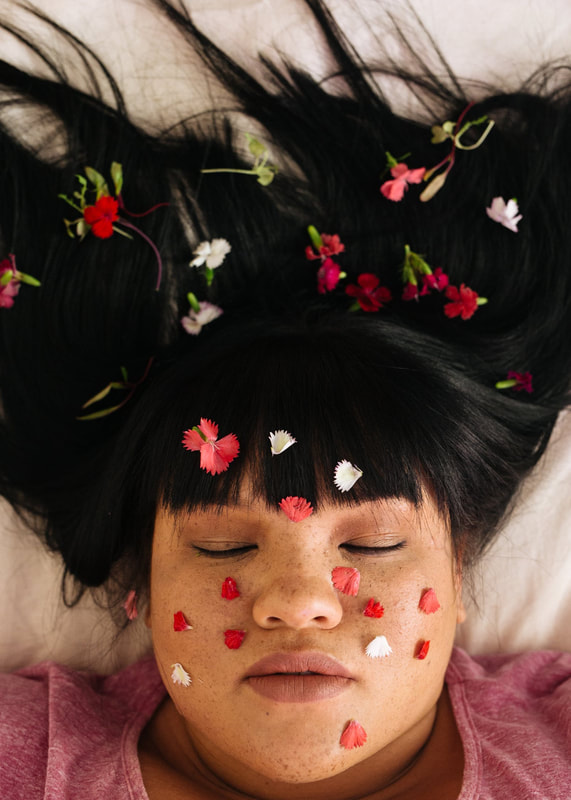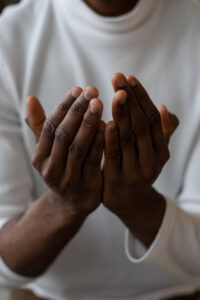
Steps to Overcoming Teenage Anger
Large or small, stress can have a powerful ongoing effect on your day-to-day life. Sometimes stress can feel so heavy and persistent–at this point–simply being validated in your emotions and physical struggles can bring relief from a stressful moment.
That’s a depressing thought.
It boggles my mind. The notion that you can get relief from not actually providing concrete assistance to the problems means many are not taking the time to disconnect from their burdens. It can become commonplace to live with stress that is accumulated in the body: being in physical pain, getting sick, or breaking out in acne.
Many of us are living our everyday lives in fight or flight response and don’t even know it. This is an unintended consequence of the constant bombardment of the “Information Age”, i.e. social media, ads, email and phone notifications.

In some B.I.P.O.C. communities, stress can result from a generational circumstances, like systemic racism, or behaviors we pass onto our children, like alcoholism. “Disparities and stresses flow from political and economic depression from social exclusion” says Sherman James, an epidemiologist, “and not having the resources to live life in a healthy way.” Sherman James, Black Health & Wellness Pioneer, developed the theory of John Henryism. He explains the persistence of health gaps is due to the struggle of dealing with the endemic forces of marginalization that create conditions so oppressive they make populations more susceptible to a variety of diseases, ultimately leaving all of their physiological systems compromised.
For myself, sometimes it doesn’t even seem like I have a chance to breathe, let alone take care of oneself fruitfully. Sherman James cites John Cassel and defines “human vulnerability to disease is a function of the social conditions at which people live.” B.I.P.O.C. communities have an overall increased generational susceptibility to chronic disease and socio-economic stress because we are “subjected to rapid social cultural change without being given the resources to cope adequately.” Access and treatment to health care is not a universal right or positively shared experience. This is why highlighting and developing Urban Health is so important as we discuss stress.

Members of racial and ethnic minorities are less likely to receive preventive health services, often receive lower-quality care, and also have worse health outcomes for certain conditions.
While cities can bring opportunities, they can also bring challenges for better health. It is known that many societal issues like unemployment, traumatic experiences, drugs, and other factors can negatively impact health. Populations in urban areas who are at risk for disease, disability, and premature death make cities special places for focusing on the promotion of health and total wellness. Urban Health Group was formed with the core value that everyone deserves quality care. We provide a bridge between healthcare navigation and mental health support.
Stress is not just a term we use to describe tough days or how we feel about fast approaching deadlines. Stress can be a very serious, visceral experience that can negatively impact your health.
Here is how we are helping reduce the stress of coordinating care:
We are help BIPOC plan well for medical emergencies with our Plan Well for Care Course
We host Wellness workshops
We develop ongoing wellness sessions for your employees through our consulting services
We Partner with others to eliminate health disparities for BIPOC
It is vital to have a community of support or a foundational system to help you manage your health care needs. Urban Health Group aims to provide Black, Indigenous, People of Color (B.I.P.O.C.) the understanding and tools to make confident decisions to establish a solid plan to navigate medical emergencies, and gain peace of mind for yourself and your loved ones. Here are a few things you can try today to relieve your stress:
Listen to soothing music
Saying “no”
Laugh
Cuddle
Read more here: https://www.healthline.com/nutrition/16-ways-relieve-stress-anxiety#16.-Spend-time-with-your-pet
Or https://jeff-bennett.medium.com/5-simple-techniques-to-lower-your-stress-1b0bc9950e27
For me, my highest periods of stress come from isolated times of pressure. The times I feel unsupported, unheard, invisible, and alone. That accumulation is overwhelming. But learning about resources like the Plan Well For Care Course create light in these storms.
We hope you are able to take time to invest in your mental and physical well being. It is our goal to create a space where you can explore and access the care you deserve.
Like, Comment & Share
Sources:
https://www.healthline.com/nutrition/16-ways-relieve-stress-anxiety#8.-Laugh


